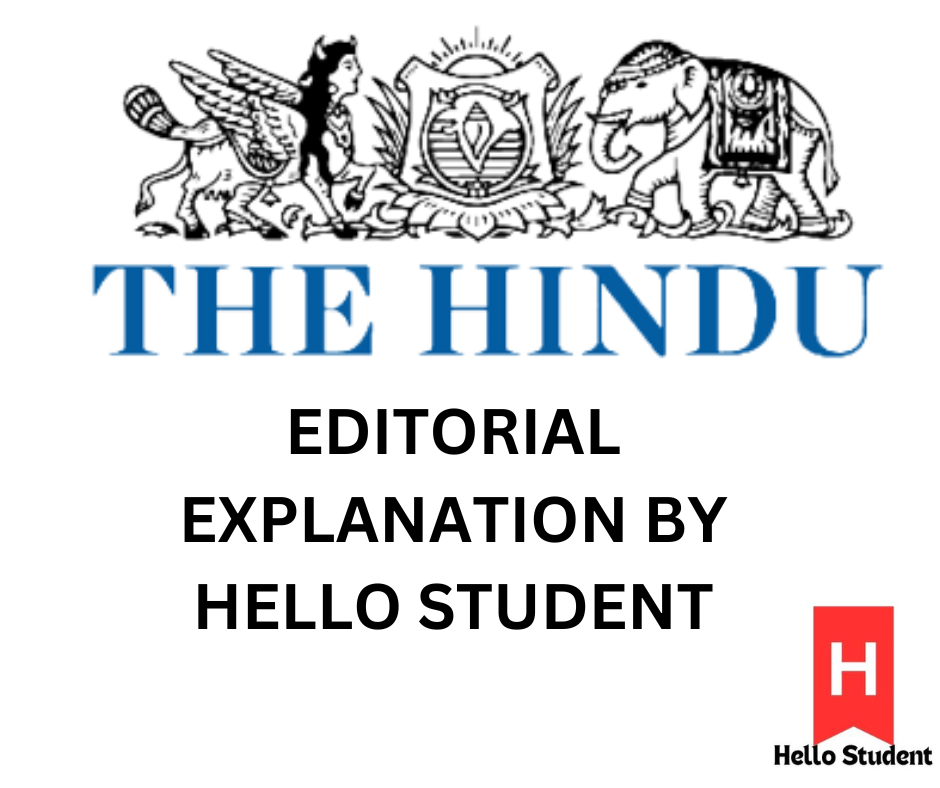The article published in the editorial section of The Hindu Newspaper highlights the ongoing conflict between Israel and Palestine and India’s response towards it.
focusing on the heavy toll it has taken on Gaza since Israel began its bombing campaign a year ago, on October 7, 2023. Over 42,000 people have been killed, many of them civilians, including 16,705 Palestinian children—making it the deadliest conflict for children in recent memory. The scale of the violence has sparked massive protests worldwide, especially in Europe and the U.S., turning it into a major global issue. However, India’s reaction has been strikingly muted.
India, historically known for supporting liberation movements and being an early ally of Palestine, has shown very little public outrage or large-scale protests in response to Israel’s actions. The article notes that while the war started after a brutal Hamas attack that killed over 1,200 Israelis and saw more than 200 taken hostage, Israel’s retaliatory strikes have been far more devastating, flattening Gaza and displacing its entire population. Despite this, India has not responded with the outrage that many expected, especially given its past support for oppressed people.
India has seen only a few significant protests. Kerala, a state in southern India, held some large rallies, but elsewhere, the response has been limited. The government has also played a role in curbing any protests, actively banning them and filing cases against those who express support for Palestine. This lack of mass mobilization stands in stark contrast to how the public has responded to other issues in the past.
The article suggests that the lack of a strong public response is partly due to the current political climate in India. The ruling Hindutva right-wing movement tends to frame the Palestine issue as a “Muslim issue,” which makes it less likely to receive broad support. Although some individual opposition leaders have spoken out, most political parties have remained silent. Left-wing parties have organized a few small protests and backed international movements like the Boycott, Divestment, and Sanctions (BDS) campaign, but these efforts have been limited.
Another major factor is India’s growing ties with Israel and the United States. The article explains that India’s relationship with Israel has strengthened over the years, particularly in defence and technology, starting with Israeli military support during the 1999 Kargil War with Pakistan. This has also aligned India more closely with the U.S., which views Israel as a key ally in the Middle East. India’s strategic focus on strengthening these international relationships seems to be influencing its muted response to the conflict.
Finally, the article raises concerns about the moral implications of India’s silence. It argues that by not condemning Israel’s actions—such as the illegal occupation, annexation of Palestinian land, and ethnic cleansing—people are essentially complicit in the violence. The article suggests that the moral values of human rights and justice, which once guided India’s global stance, are being sidelined in favour of strategic alliances and a focus on fighting terrorism, ignoring the deeper issues of occupation and Palestinian suffering.
.
.
.
.
.join our telegram channel for regular updates of The Hindu Epaper Editorial Explanation-https://t.me/Thehindueditorialexplanation
The Hindu Epaper Editorial Explanation given by Hello Student is only a supplementary reading to the original article to make things easier for the students.
In conclusion, preparing for exams in India can be a daunting task, but with the right strategies and resources, success is within reach. Remember, consistent study habits, effective time management, and a positive mindset are key to overcoming any academic challenge. Utilize the tips and techniques shared in this post to enhance your preparation and boost your confidence. Stay focused, stay motivated, and don’t forget to take care of your well-being. With dedication and perseverance, you can achieve your academic goals and pave the way for a bright future. Good luck!
The Editorial Page of The Hindu is an essential reading for all the students aspiring for UPSC, SSC, PCS, Judiciary etc or any other competitive government exams.
This may also be useful for exams like CUET UG and CUET PG, GATE, GMAT, GRE AND CAT
To read this article in Hindi –https://bhaarat.hellostudent.co.in/

